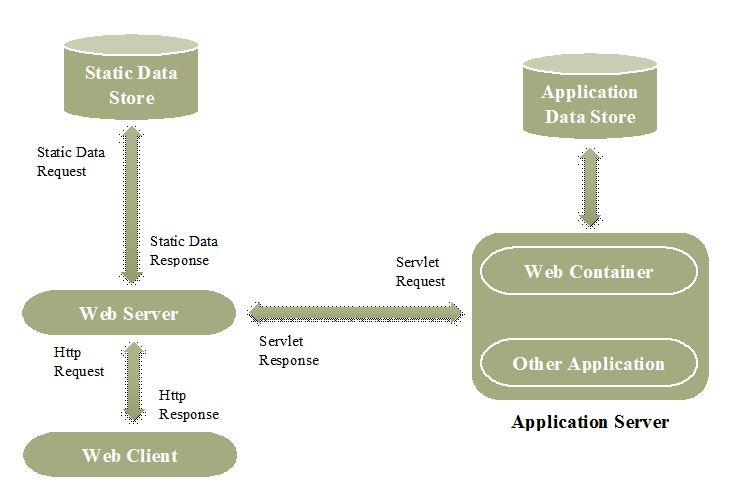What is a web server Definition? As internet users, we interact with web servers on a daily basis.
But what exactly is a web server and how does it function to power our online experiences?
In this section, we will explore the concept of a web server, including its definition, functionalities and importance in our daily web interactions.
At its core, a web server is a piece of software designed to handle website requests and deliver web content to users.
It works by managing incoming requests from browsers and processing web pages, allowing users to access content like images, videos and text.
Web servers are crucial to the functioning of the internet, enabling communication between websites and users through the transmission of data.
Without web servers, we would not be able to access any online content, from social media platforms to online shopping websites and everything in between.
In the next sections, we will delve deeper into the functionalities of web servers, the role they play in our online experiences and the processes involved in delivering web content from a server to a user’s device.
Understanding Web Server Definition and Their Role
Now that we have explored the definition of a web server, let’s take a closer look at their role in facilitating our online experiences.
The Backbone of the Web
Web servers are the backbone of the internet, serving as the point of communication between websites and users.
Every website we visit is hosted on a web server, and every time we interact with a website, we are connecting to a web server.
The Role of Web Servers
The primary role of a web server is to manage incoming requests from users and deliver web content in response.
When a user types a website URL into their browser, the browser sends a request to the web server hosting the website, requesting the corresponding web pages.
The web server then processes these requests and delivers the requested web pages to the user’s browser, enabling them to view the website’s content.
In addition to managing these incoming requests, web servers also play a critical role in processing web pages and delivering them to users efficiently.
They use a variety of techniques to manage traffic and optimize performance, including caching of frequently accessed content and load balancing across multiple servers.
As we can see, web servers serve an essential role in powering our online interactions.
By managing and delivering web content, they enable us to access and interact with the vast array of websites available on the internet today.
Key Functionalities of Web Servers

Web servers are an essential component of the internet’s infrastructure, managing website requests, processing web pages, and delivering web content to users.
Let’s take a look at the key functionalities of web servers.
Managing Website Requests
Web servers manage incoming website requests, including requests for specific files, pages or resources.
When a user types in a website address or clicks on a link to a webpage, a request is sent to the website’s server.
The server then processes the request, retrieves the necessary files and resources and sends them back to the user’s device.
Processing Web Pages
Web servers are responsible for processing web pages, including executing server-side scripts and generating dynamic content.
When a user requests a web page, the server processes the page’s code, retrieves any necessary data from databases or other sources and generates a final page to be sent back to the user’s device.
Delivering Web Content
After processing a request and generating a web page, the web server is responsible for delivering the content to the user’s device.
This process involves sending the page’s HTML, CSS and JavaScript files to the user’s browser, which then interprets and displays the content.
Overall, web servers play a critical role in managing website requests, processing web pages and delivering web content to users.
Without web servers, the internet as we know it would not be possible.
Behind the Scenes: How Web Servers Work
Now that we understand the importance of web servers and their functionalities, let’s take a closer look at how they work.
The Client-Server Model
Web servers operate on the client-server model, where the server receives requests from clients and responds by delivering web content to them.
Clients, in this case, refer to user devices such as computers, tablets or smartphones, while servers are specialized computers designed to store and manage web pages.
The HTTP Protocol
When a user attempts to access a webpage, a request is sent to the web server.
The request is sent using the HyperText Transfer Protocol (HTTP), a communication protocol that allows for the transfer of data over the internet.
The server processes the request and responds with the requested web content, also using HTTP.
The HTTP protocol consists of two types of messages: requests and responses.
A request message is sent by the client to the server, indicating what resource is being requested.
The response message is sent by the server, delivering the requested resource or indicating that an error has occurred.
Processing Web Content
Once the web server receives a request, it must process the requested web content before delivering it to the client.
This involves retrieving the requested webpage from storage, parsing any associated files or scripts and generating a response that can be transmitted to the client.
Once the response is generated, it is sent back to the client using the HTTP protocol.
The client receives and interprets the response, displaying the requested web content in a user-friendly format.
Overall, web servers play a critical role in facilitating communication between websites and users.
Understanding their operation, from the client-server model to the HTTP protocol, allows us to appreciate their significance in our daily web interactions.
Conclusion
We now know that a web server is a specialized computer that stores and delivers web content to users across the internet.
Without web servers, we wouldn’t be able to enjoy the seamless browsing experiences that we take for granted today.
In this article, we have explored the definition of a web server and gained insights into how it functions to power our daily web interactions.
We have also discussed the critical role that web servers play in managing website requests, processing web pages and delivering web content to users.
As we have seen, web servers operate according to the client-server model, using the HTTP protocol to facilitate communication between websites and users.
By understanding how web servers work, we can better appreciate the complexity and sophistication of the internet infrastructure that underpins our digital lives.
So the next time you open a website or app on your device, spare a thought for the web server that is working tirelessly behind the scenes to deliver the content you seek.
It is truly remarkable how seamlessly and invisibly web servers operate, enabling us to connect, learn and engage with the world in new and exciting ways every day.
FAQ
What is a web server?
A web server is a computer program that delivers web content to users’ devices. It acts as the central hub for managing website requests, processing web pages, and delivering web content.
How does a web server work?
When a user requests a website, the web server receives the request and retrieves the requested web page. It then processes the web page and sends it back to the user’s device, allowing them to view the content in their web browser.
What are the main functionalities of web servers?
Web servers have several key functionalities, including managing website requests, processing web pages, and delivering web content to users. They ensure efficient communication between websites and users and play a crucial role in facilitating our online experiences.
What is the HTTP protocol, and why is it important for web servers?
The HTTP (Hypertext Transfer Protocol) is the protocol used for transferring data between web servers and clients. It defines how information is formatted and transmitted across the internet. Web servers rely on the HTTP protocol to handle website requests, process web pages, and deliver web content to users.
How do web servers enable our daily web interactions?
Web servers play a crucial role in enabling our daily web interactions by ensuring efficient communication between websites and users. They manage website requests, process web pages, and deliver web content, allowing us to access and interact with various online resources.





